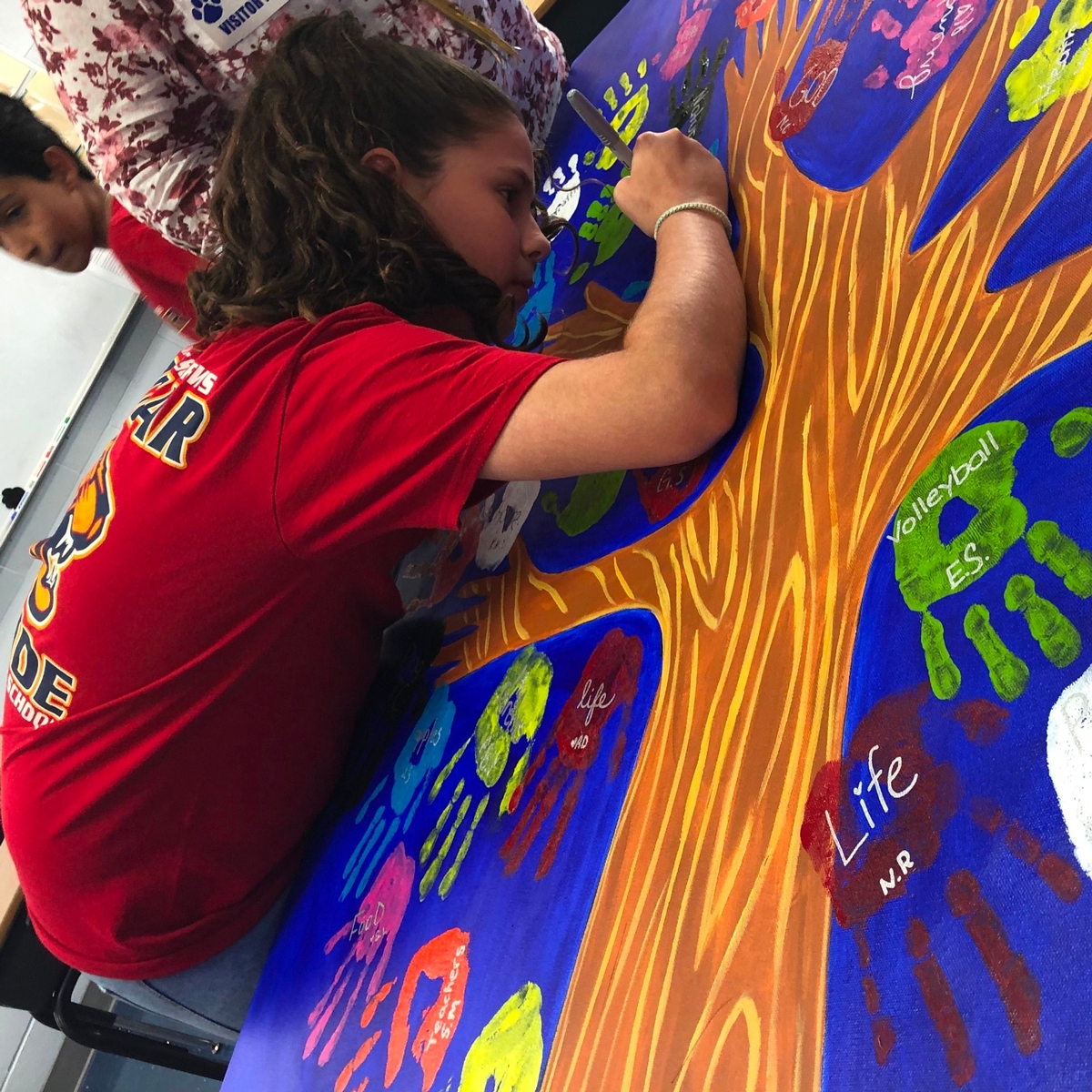Respect Life

The month of October, while being traditionally dedicated to promoting devotion to praying the Rosary, is also set aside as Respect Life month. All Catholic schools in the Diocese of Brownsville took a week in all religion classes to focus on themes of respecting life, and parishes throughout our diocese worked on prayer chains, vigils, homilies, classes and activities that promoted the theme of life as well.
This theme of respecting life flows from our Church's emphasis on promoting Catholic social teaching (CST), usually abbreviated to the following list of seven principles:
- Life and Dignity of the Human Person
- Call to Family, Community & Participation
- Rights and Responsibilities
- Option for the Poor and Vulnerable
- The Dignity of Work and the Rights of Workers
- Solidarity
- Care for God's Creation
Each of these seven themes encompasses different facets of promoting a culture of life, and all the themes flow from Scripture, Christian discipleship, and the practice of heroic virtues.
Life and Dignity of the Human Person / Rights & Responsibilities
We're reminded of the common bonds of every human person as a sacred (holy; set aside by God for a special purpose) and unique expression of God's grace in the world. This teaching acts as the anchor point for the other six CST principles. Concretely, this teaching reminds us that euthanasia, abortion, the death penalty, human cloning, embryonic stem cell research and acts of terrorism, aggression and war are contradictory to following a Catholic Christian way of life. We're challenged to find peaceful ways of resolving conflicts that emphasize the presence of God in the life and actions of every human person, without regard to age, gender, socio-economic status, education, faith, nation of origin, culture, skin color or any other factor that humans use an excuse to discriminate or treat another person as "less than". We become free to focus less on individual rights, and more able to focus on individual responsibilities and responsibilities to each other.
Call to Family, Community & Participation / Option for the Poor & Vulnerable
Flowing from our respect of every individual person, we remember that humans are social creatures, and that our individual wants and needs are part of the collective experience of our family, our work place, our community, our nation, and our world. This CST challenges us to view our actions not just in light of our individual impact, but in light of the impact it can have on every other person on this planet. We're further challenged to use our time and resources wisely to help better our family, our community, and our world, especially those that are the poorest and most vulnerable in our midst: that could be by donating to Emily's Meals, the Star of Hope Center, Catholic Charities, the Humanitarian Respite Center, Habitat for Humanity, the Catholic Youth Renovation Project, the Food Bank of the RGV, or any of the other multiple organizations that work tirelessly to elevate the dignity of every human person.
The Dignity of Work and the Rights of Workers
Just as every human person deserves respect and a recognition of their inherent dignity, so every form of legal and ethical work deserves respect, as does every person that works for a living. A just and living wage that allows individuals and families to dedicate their time and energy to both the common good and the good of themselves and their families is a goal of this particular CST. Recognition that all work and all workers are worthy of respect, wether a CEO of a global business or a day laborer, is part and parcel of this CST. Tempering the need to make profit at the expense of people is a core component of this teaching as well.
Solidarity / Care for God's Creation
Ultimately, we are one human family that is entrusted to the stewardship of the planet we share. Joining with and learning from others - especially those who are different from us - brings us closer together as a human family. In turn, we work together to care for the natural resources that allow life to flourish on this planet. An unfettered mindset of consumerism or materialism that refuses to see the impact it has on our planet is the opposite of what these teachings espouse.
As we continue to work towards becoming more and more the image of Christ that forms the core of our being, let us pray that we can work together to more fully celebrate a culture of life by working to practice the principles of our Catholic Social Teaching.
Blessings & Peace,
Hugo De La Rosa III
